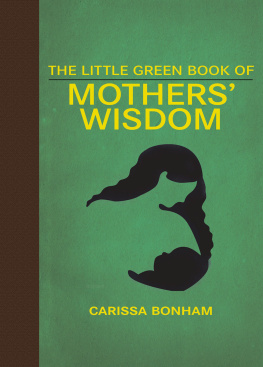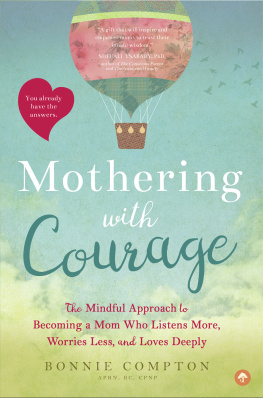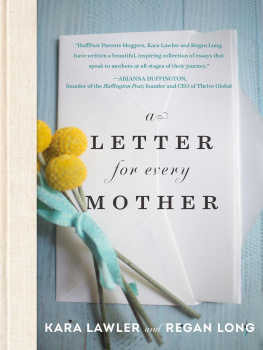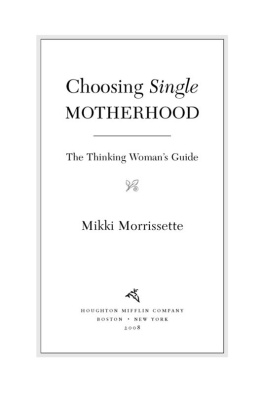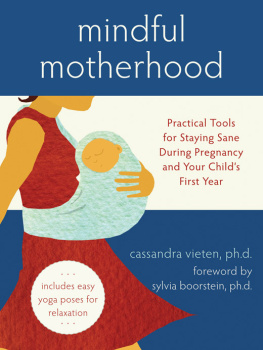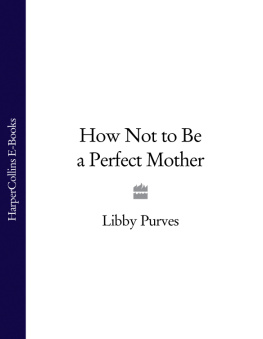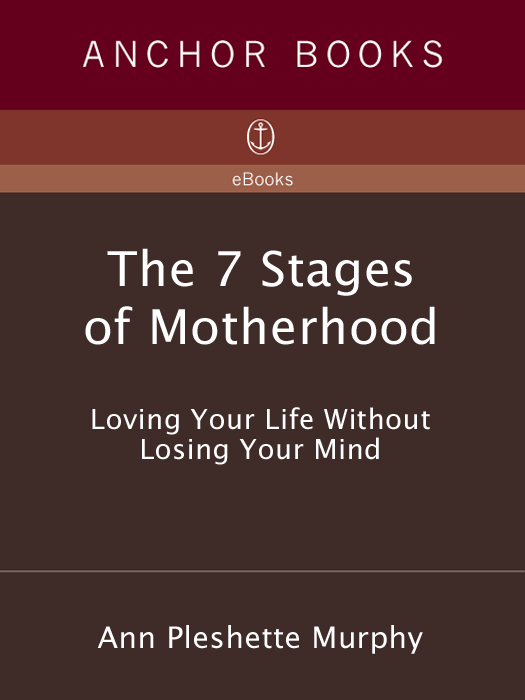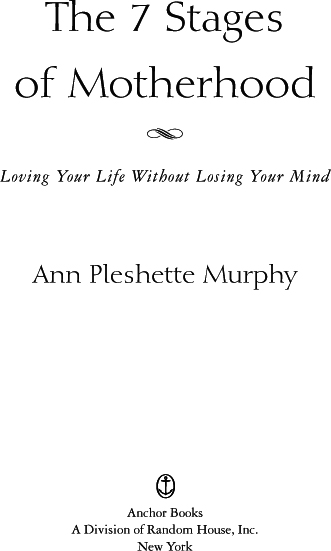Acclaim for Ann Pleshette Murphys
The 7 Stages of Motherhood
If Murphys experience has taught her anything, its that empathy and solidarity among mothers can be more valuable than any advice.
The Washington Post
Murphy, former editor in chief of Parents magazine, is poignant and funny, whether describing her own moms singing to her infant son (a pack-a-day voice running the musical gamut from C to D-flat) or her teen daughters clothing meltdowns (which were, of course, not about clothes at all).
Prevention magazine
Reassuringly, Murphy isnt shy about revealing her own experiences as a parent to dispel the notion of the perfect mom. A comforting book for uncertain mothers.
Publishers Weekly
Heartwarming, witty, and wise. Let Ann Pleshette Murphy be your guide on this charming tour through motherhood.
Harvey Karp, M.D., author of The Happiest Baby on the Block
No one is in a better position to support and inform parents than Ann Pleshette Murphy, whom every parent can look to with extreme confidence because of her years of personal experience as a mother, unlimited access to experts, and, perhaps most important, the special warmth and honesty with which she approaches the joys and challenges of parenthood.
Nancy Samalin, author of Loving Without Spoiling:
And 100 Other Timeless Tips for Raising Terrific Kids
Murphy has told us rare and liberating truths about parenting. Her respect for her kids, and ours, sets a standard for parenting books.
Kyle Pruett, M.D., author of Fatherneed:
Why Father Care Is as Essential as Mother Care for Your Child
Murphy is every Momsand Dadsbest friend. She has captured the complexities, joys, and sorrows of parenting and presented them in ways that help us manage the usual and unusual crises of caring for children in the midst of a busy life.
Samuel J. Meisels, president of the Erikson Institute,
author of Winning Ways to Learn
Murphy knows what to expect after youre expecting. Her stories and insights about mothering do more than teach the facts of childrens development. This is a book about adult developmentabout how running the emotional gauntlet of parenting changes us forever.
Justin Richardson, M.D., coauthor of
Everything You Never Wanted Your Kids to Know About Sex (But Were Afraid Theyd Ask)
Ann Pleshette Murphy
The 7 Stages of Motherhood
Ann Pleshette Murphy has been Good Morning Americas on-air parenting expert since 1998. A highly sought-after speaker, she was for ten years the editor in chief of Parents magazine. Her column, Mom Know-How, currently appears in Family Circle. She serves on the board of Zero to Three, the leading national organization dedicated to the well-being of infants and toddlers. She resides in New York City with her husband and two children.
To Steve, the love of my life,
and to Madeleine and Nick,
who are my life
CONTENTS
Stage 1
Altered States: Pregnancy, Birth, and the Fourth Trimester
Stage 2
Finding Your Footing, Finding Yourself:
Months Four Through Twelve
Stage 3
Letting Go: The Toddler Years, One and Two
Stage 4
Trying to Do It All: The Preschool Years, Three to Six
Stage 5
Reading the Compass to God-Knows-Where: Years Six to Ten
Stage 6
Living in the Gray Zone: The Preteen Years, Ten to Thirteen
Stage 7
It Gets Easier and Then They Leave:
The Teen Years, Thirteen to Eighteen
INTRODUCTION
Motherhood: Its the defining event in a womans life, a seismic transformation, a path we travel forever. But most of the literature on motherhood neglects the mother. Were coached on the how-tos, not the why-mes. Were encouraged to stand in our childrens shoes, while our own shoes gather dust. As we learn to read our kids signals, anticipate their needs, and accommodate their demands, we rarely take the time to reflect on where we are or where we want to be. The result is that even the most confident mom often feels unsure of her footing. And those of us who arent so sanguine worry that were headed in the wrong direction entirely, dragging our children along this path toward God-knows-where.
When Maddie and Nick were babies, I devoured every child-development tome I could lay my hands on. The fact that I was editing the leading parenthood magazine in the country gave me access to the best and the brightest among baby experts. Drs. Spock and Brazelton were on my speed dial. But rarely did a day go by that I wasnt painfully aware of my rookie rating. Second-guessing became second nature. I was great at giving other people advice about bedtime rituals or picky eaters, but I routinely spent two hours trying to get Maddie to bedeven resorting to crawling out of her room on my hands and knees to avoid making the floor creak.
With Nick, my been there, done that status helped a little, but the first boy in a long line of Pleshette-Murphy girls made it clear from birth that he was composed of a completely different set of chromosomes than his sister. For every stretch of road I felt prepared to walk, there were four unexpected turns that brought me face-to-face with my own insecurities.
When I left Parents to write this book, Maddie and Nick were thirteen and nine, respectively, and I was the parenting contributor to Good Morning America. Viewers who e-mailed me questions routinely addressed me as Dr. Murphy, conferring a degree of expertise and a credential I hardly deserved, but I did have decades of cumulative knowledge. Not my own, but that of the hundreds of moms, child-development experts, and researchers I had met and interviewed over the years. If there was one thing I learned, it was the simple yet ironic fact that motherhood is the great equalizer; become a mother and join a sorority that bridges millennia and miles. But as much as we all have in common, each of us is unique, and as quickly as our children change, we do, too. The mother your baby knew is not the same person ten months, let alone ten years, later. Child number three experiences a different mom than the one his older siblings knew. And, of course, the entire family evolves and develops along with each child. As Erik Erikson observed in Childhood and Society, This weak and changing little being moves the whole family along. Babies control and bring up their families as much as they are controlled by them; in fact, we may say that the family brings up a baby by being brought up by him.
We watch our children grow and change at a furious rate, panting to keep up or, if were lucky, to stay one step ahead, and in so doing we develop muscles, new ways of thinking, and a whole new self-concept. One eminent psychologist characterized our evolution as a kind of contained vertical progression, a building that grows taller but remains solidly rooted in place. Our children, on the other hand, are always pushing outward and away: While children move themselves as individuals separate from their mothers, women evolve from one maternal identity to another, writes Rozsika Parker in her book Torn in Two. Thus they move from being a mother supporting a head, to a mother pushing a buggy, to a mother holding a hand, to a mother waving a hand, to a mother waiting for a hand to hold.


